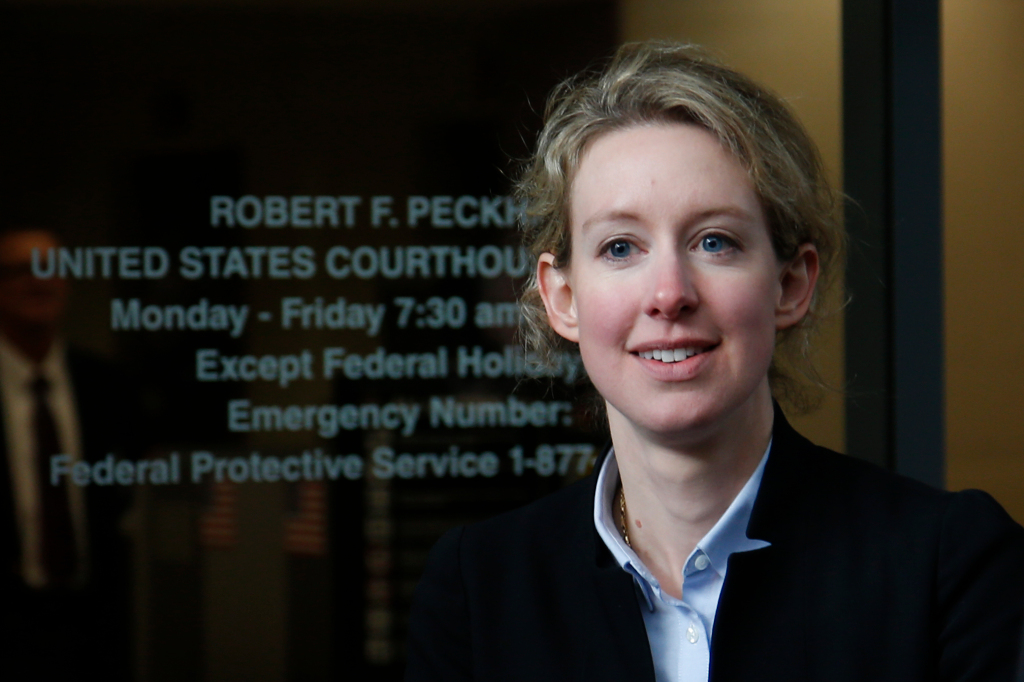A new felony count that brought the number of criminal fraud charges against Theranos founder Elizabeth Holmes to a dozen is “patently unconstitutional,” her legal team says.
Federal prosecutors earlier this month in a new “information” filed an additional felony fraud charge against Holmes, related to a patient’s blood-test results. The information — a formal accusation by a government lawyer rather than by a grand jury — did not provide details about the charge.
Four days after the charge was filed May 8, Holmes’ lawyer Lance Wade talked to prosecutor Robert Leach “to inquire into the government’s rationale for filing a patently unconstitutional information,” said a filing by Holmes’ defense team in U.S. District Court in San Jose. “Mr. Leach refused to provide any rationale.”
Holmes, along with former Theranos president Sunny Balwani, is accused of misleading investors, doctors and patients about the capabilities of their Palo Alto startup’s blood-testing machines, which the company claimed could conduct a full range of tests using a few drops of blood from a finger-prick.
In reality, the federal government alleges, Holmes and Balwani knew there were accuracy and reliability problems with their “analyzer” and that it could only conduct a limited number of tests. The two misled investors about Theranos’s financial health, and misrepresented business relationships with Walgreens and the U.S. Department of Defense, prosecutors claim. Holmes and Balwani have denied the allegations.
Her legal team, in the filing Monday, argued that once a person is indicted, “charges may not be broadened through amendment except by the grand jury itself.”
The Fifth Amendment of the U.S. Constitution specifies that criminal defendants can be tried only upon “a presentment or indictment of a grand jury,” a protection implemented through the Federal Rules of Criminal Procedure, Holmes’ team argued. Those rules say an offense punishable by more than a year’s imprisonment — such as the crimes Holmes is alleged to have committed — can only be prosecuted through an information if the defendant waives prosecution by indictment, and Holmes has not done so, her team said.
Prosecutors’ attempt to use an information to broaden the case against Holmes “should be deemed without legal effect and dismissed immediately,” the filing said.
Holmes’ trial, originally set for this summer, was delayed by the coronavirus pandemic until fall, with jury selection scheduled to start Oct. 27. But Judge Edward Davila has expressed doubt about whether the start date will stand, and has set a status hearing for July 20 to consider the matter.










